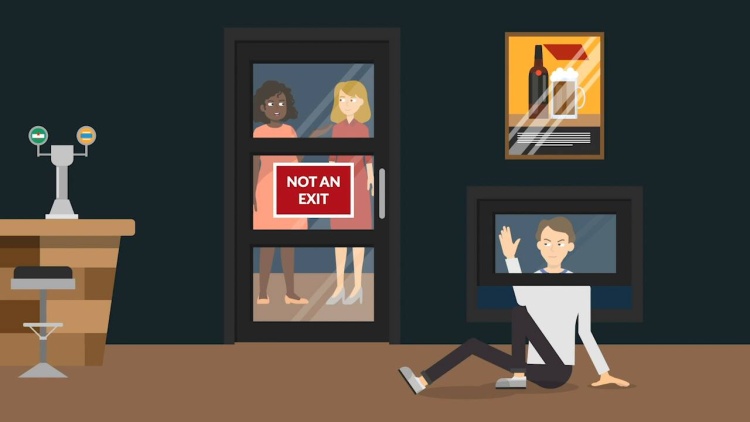Leffler v. Sharp
Mississippi Supreme Court
891 So. 2d 152 (2004)

- Written by Denise McGimsey, JD
Facts
After a night of gambling and drinking, Walter Leffler (plaintiff) and some coworkers went to the Quarter Inn, a restaurant and bar that was owned and operated by Kim Free (defendant). The Quarter Inn was located on the second floor of a building owned by Sharp Enterprises (defendant), whose owner was Harry Sharp (defendant) (collectively, Sharp). At some point, Leffler left the bar to escape the heat and noise. He spied an open window nearly three feet above the floor; it was 24 inches long and 32 inches wide. He could see a couple of people on the adjacent rooftop outside the window. A nearby glass door leading to the rooftop was locked and stenciled “NOT AN EXIT.” Leffler climbed through the window onto the rooftop. When he was walking upon it, he fell through the roof and sustained serious injuries. Apparently, the area had once served as a terrace but had been closed off because it was unsafe. Leffler sued Free, individually and d/b/a Quarter Inn (collectively, Free), and Sharp in a Mississippi state court. Free and Sharp filed motions for summary judgment on the ground that Leffler was a trespasser when he accessed the rooftop. Leffler argued that, under the circumstances, he was an invitee or a licensee. The trial court granted summary judgment to Sharp and Free. Leffler appealed.
Rule of Law
Issue
Holding and Reasoning (Cobb, J.)
What to do next…
Here's why 907,000 law students have relied on our case briefs:
- Written by law professors and practitioners, not other law students. 47,100 briefs, keyed to 996 casebooks. Top-notch customer support.
- The right amount of information, includes the facts, issues, rule of law, holding and reasoning, and any concurrences and dissents.
- Access in your classes, works on your mobile and tablet. Massive library of related video lessons and high quality multiple-choice questions.
- Easy to use, uniform format for every case brief. Written in plain English, not in legalese. Our briefs summarize and simplify; they don’t just repeat the court’s language.





